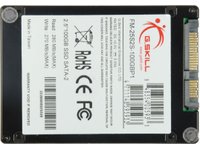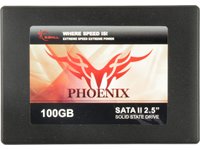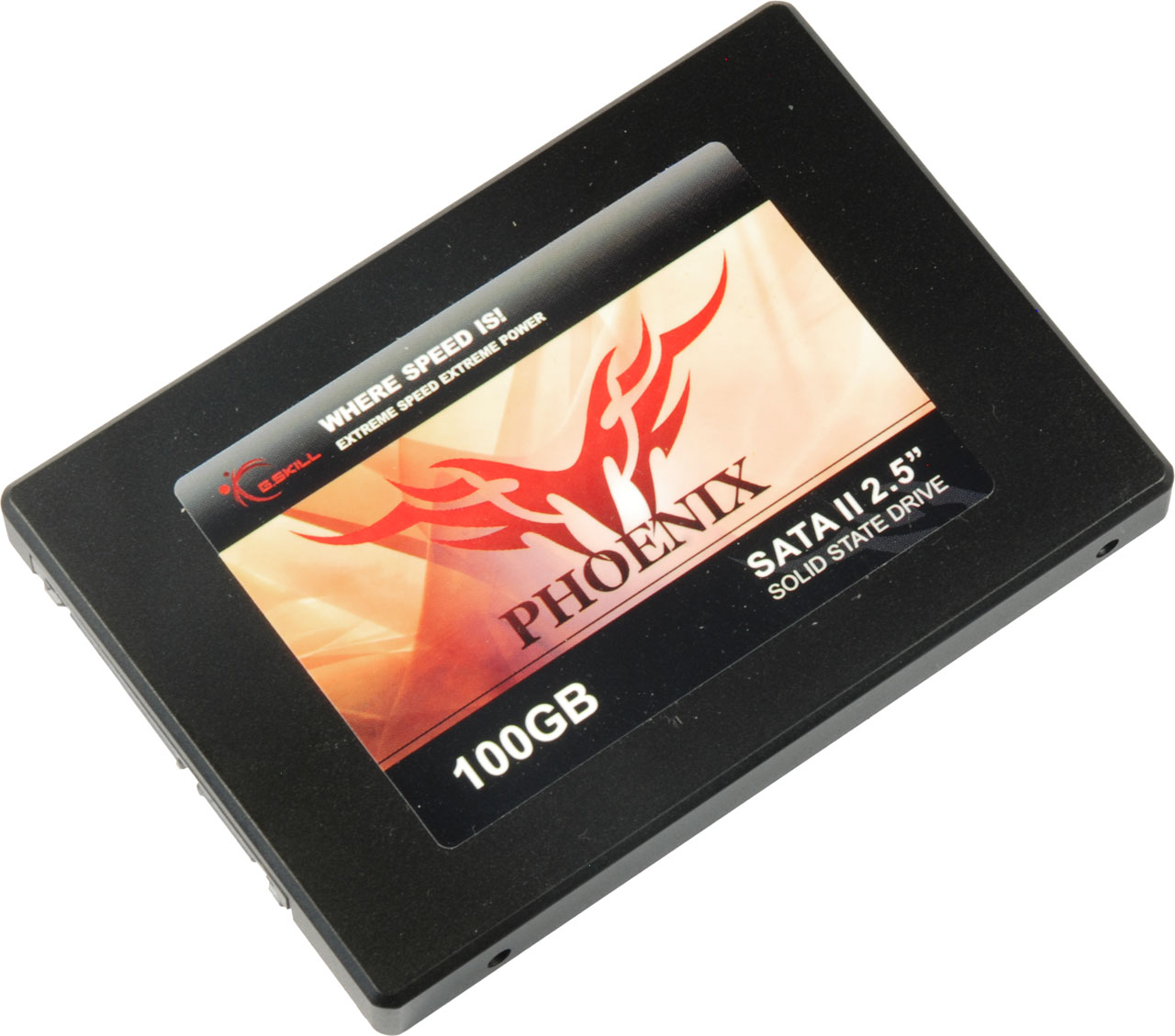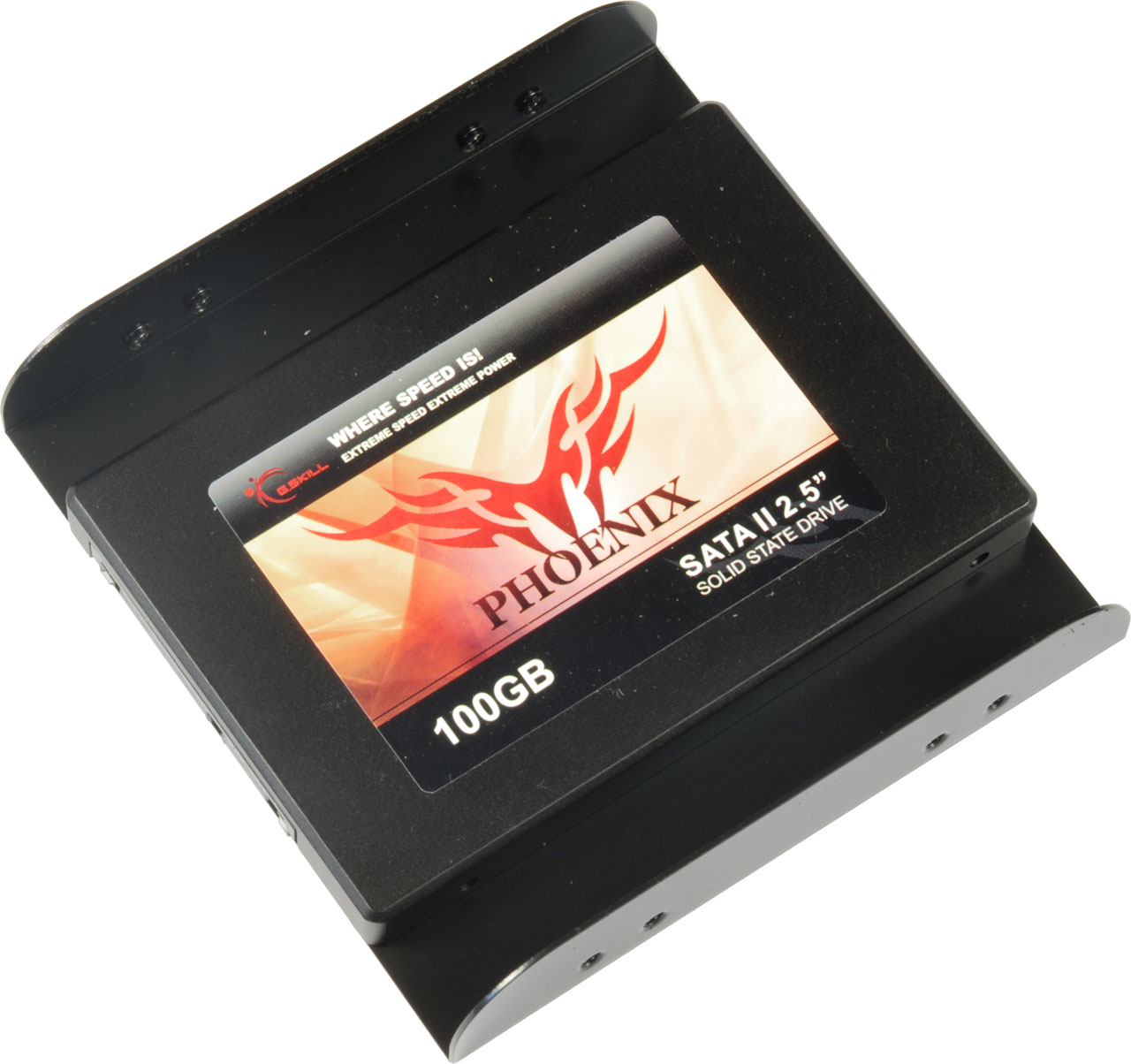Tom's Hardware's Summer Guide: 17 SSDs Rounded Up
Which SSD should you buy today? Seventeen flash-based drives battle across a benchmark suite that include throughput, I/O performance, consistency, power consumption, efficiency, and the best overall bang for the buck. The time is right to upgrade.
G.Skill Phoenix FM25S2S (100 GB)
We received two standard versions of G.Skill’s Phoenix SSD, along with a Pro version. The regular model is based on SandForce’s SF-1200 controller and comes in 100 or 120 GB capacities. G.Skill specifies an impressive 2 million hours MTBF. It typically maintains read speeds of around 230 MB/s, but may drop to 170 to 180 MB/s for sequential reads with varying workloads due to write amplification and data reshuffling. The Pro drive, discussed on the next page, has higher maximum numbers, but lower minimums.
This drive is one of the fastest when it comes to I/O performance. Intel’s X25-M drives and the Crucial RealSSD C300 are better in the Web server test, but file server, database, and workstation operations are quicker on the Phoenix SSD. If you depend on 4K random writes, then you should go for the Phoenix Pro, which is optimized to this type of workload through block alignment.
Overall, this is a great SandForce-powered SSD at a mainstream 100 GB capacity point. Looking at our price/performance chart reveals impressive results. As the Phoenix delivers above-average performance at a below-average price, it yields great performance for the buck. The two higher-performing SSDs only offer 40 or 64 GB capacities, which might not satisfy enthusiasts.


Get Tom's Hardware's best news and in-depth reviews, straight to your inbox.
Current page: G.Skill Phoenix FM25S2S (100 GB)
Prev Page Crucial RealSSD C300 (64 GB) Next Page G.Skill Phoenix Pro (120 GB)
